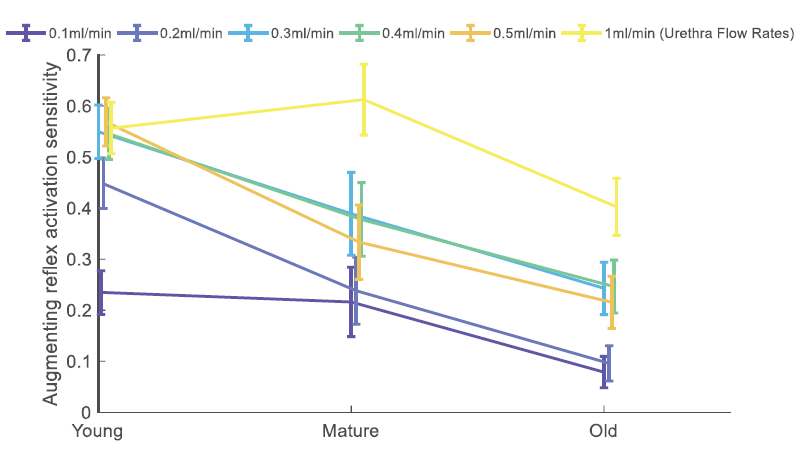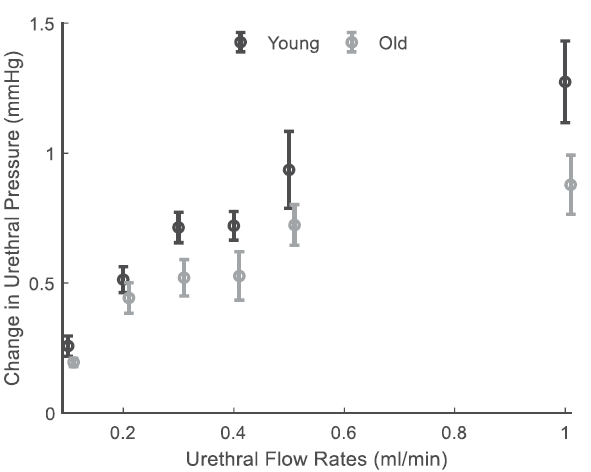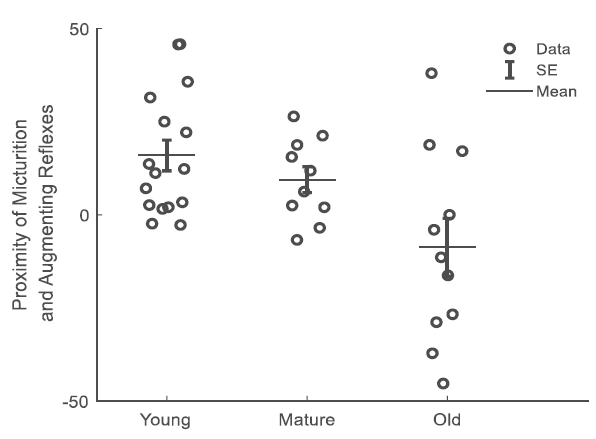Many of us accept that our bladders naturally weaken as we age, but is it inevitable? To stop age-related bladder underactivity (UAB) we will need to first understand why it happens. We looked at how losing sensation in the urethra might lead to UAB.
If the bladder is full, fluid entering the urethra will trigger the augmenting reflex (AR), which generates or strengthens a bladder contraction. But the older a rat gets, the more urethral flow it takes to trigger the AR! It suggests one reason for UAB.

We also found that the same urethral flow rates create less pressure in the urethra in old animals compared to young. Since urethra sensory neurons respond to pressure, this may be another contributing factor to UAB. This may be caused by physical changes in the urethra.

When young animals’ bladders fill they become primed to void, and the AR becomes active. But in old animals, we often had to fill their bladders to full capacity to get an AR! This weird delay in switching to “voiding mode” reminded us of UAB symptoms like hesitancy.

It looks like changes in neural sensitivity in urethra and bladder limit AR effectiveness and create age-related UAB-like symptoms. If true, maybe we can target those nerves to improve the problem. Check out the rest of the analysis and stay tuned for the upcoming sequel.
Geramipour, A. and Z. C. Danziger (2020). “Sensitivity of urethral flow-evoked voiding reflexes decline with age in the rat: insights into age-related underactive bladder.” American Journal of Physiology-Renal Physiology 318(6): F1430-F1440.